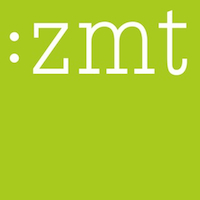Poll: What proportion of your income comes from translation? Thread poster: ProZ.com Staff
|
|---|
This forum topic is for the discussion of the poll question "What proportion of your income comes from translation?".
This poll was originally submitted by Michael Hughes. View the poll results »
| | | |
I have a pension for the 20 years I worked as staff translator at an EU Institution + my income from freelancing.
| | | |
100% comes from translation type stuff but only about 75% from translation as such. I also do writing and summarising and monolingual editing type stuff for the same customers.
| | | |
Lieven Malaise
Belgium
Local time: 02:17
Member (2020)
French to Dutch
+ ...
Translator since 2000, fulltime freelancer since 2005 and still enjoying every minute of it.
| | |
|
|
|
In spite of the translation industry's (or at least its executives') best efforts to make the profession as unattractive as possible, I am still enjoying being a full-time freelancer.
I am also not counting the occasional gas money paid for small regional gigs with my band.
| | | |
I have an Italian survivor's pension from my late husband and a Spanish one on my own since last year, due to having reached the age limit and 20 years of contributions paid in Spain and Italy.(joined) I am also a vacation rental host in Spain and Italy. But I only enjoy translating.
[Edited at 2024-05-21 14:16 GMT]
| | | |
Michael Hughes 
United Kingdom
Local time: 01:17
Member (2022)
Japanese to English
+ ...
| Anyone else surprised at the proportion of full-timers/almost full-timers? | May 22 |
Considering freelance translation can be done alongside other jobs?
| | | |
Michael Hughes wrote:
Considering freelance translation can be done alongside other jobs?
I am not fulltime anymore because not enough jobs since 2023, and I was forced to diversify,
| | |
|
|
|
Dan Lucas 
United Kingdom
Local time: 01:17
Member (2014)
Japanese to English
Michael Hughes wrote:
Anyone else surprised at the proportion of full-timers/almost full-timers?
Considering freelance translation can be done alongside other jobs?
I'm not surprised. My basic hypothesis is that, in areas of strong demand, clients will overwhelmingly favor those translators who have in the past shown a high degree of availability, and who are therefore most likely to have capacity, even if they have similar levels of raw translation ability.
(The other issue is probably responsiveness, even with clients as staid as mine. A client sent me a job earlier in the week which I really liked the look of, but instead of biting immediately I downloaded the file and looked at it with interest. Three minutes later the client told me somebody else had already accepted it. Speed matters.)
I'm convinced that most of my agency clients just go down a list of five or ten people and try each one in turn, with the exact order varying in accordance with such factors as whether this particular translator has done work for this particular end client in the past. The actual order may not be A, B, C, D, E but rather A, D, C, B, E.
If this were the case, there would probably be few occasions on which the project manager has to ask more than three or four people. Under this scenario, orders would be overwhelmingly concentrated in the top five translators for that agency, even if the top twenty translators were to have quite similar levels of translation ability. The result would probably be that the top five would struggle to keep up with demand, and everybody else would get relatively little work.
Extending this, most of the really successful translators (setting aside the vexed question of what constitutes success) have little choice but to work full time, because being available at that level is an important part of their value to the client.
This is just a hypothesis. I can't see anyway to prove it without looking at an agency's books. Obviously they're not going to let me do that...
Dan
| | | |





















